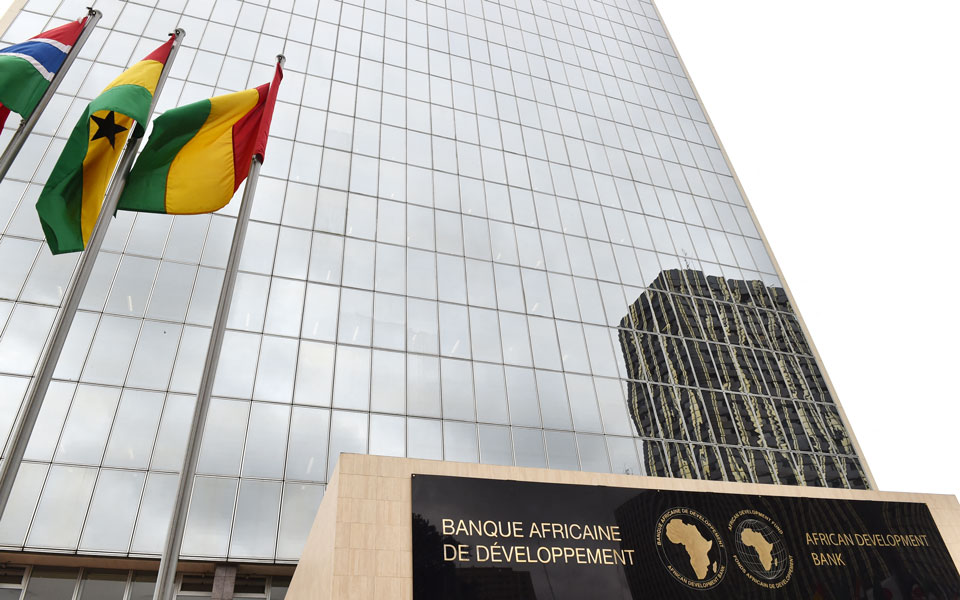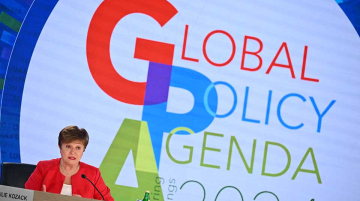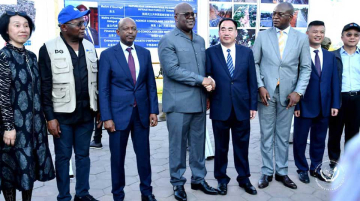
By Tim Hirschel-Burns and Oyintarelado Moses
To close out a month in which the Asian Development Bank and the European Bank for Reconstruction and Development also held their annual meetings, the African Development Bank (AfDB) will hold its annual meetings this week in Nairobi, Kenya. In addition to taking stock of the institution’s direction and bringing together its key leadership and stakeholders, one output of this meeting will be the launch of the 2024 African Economic Outlook.
The African Economic Outlook is one of the leading sources of data and analysis on African economies, and it is notable that this year’s edition is titled “Driving Africa’s Transformation: The Reform of the Global Financial Architecture.” African countries have encountered pandemic recovery, climate change and global conflict challenges in recent years. Increased debt burdens due to depreciating currencies and higher debt service costs, rising interest rates and low availability of Chinese development finance have restricted access to financing for development.
After recent years have laid bare the inadequacies of the global financial architecture, African countries have zeroed in on the need to use their diplomatic leverage to change it. One key pillar of this transformation is the need to provide more and more effective development finance—and both the AfDB and China have roles to play in providing it.
In response to recent challenges, African countries have increasingly pushed for the transformation of the global financial architecture which constrains their development and ability to influence international affairs. These efforts have brought incremental progress. Last year’s first-ever Africa Climate Summit—hosted by Kenya, whose President William Ruto has emerged as a diplomatic leader—elevated Africa’s climate agenda. The African Union gained a seat in the Group of 20 last year, and while sub-Saharan African countries did not gain a greater share of voting power in the International Monetary Fund, they won an additional seat on the board. China has largely been supportive of Africa’s push to reform the global financial architecture, notably supporting the Africa Group’s successful resolution to advance tax cooperation at the United Nations, which Global North countries almost unanimously opposed.
One important recent reform will expand the lending capacity of the AfDB. The IMF issued $650 billion of its reserve asset—Special Drawing Rights (SDRs)—in 2021, but because they are distributed in line with the IMF’s highly unequal quota system, a large share of SDRs have sat on the balance sheets of rich countries with no use for them. Along with the Inter-American Development Bank, the AfDB has led a proposal to recycle unused SDRs to the institutions as hybrid capital, but some IMF shareholders—particularly European ones—have questioned whether this use of SDRs is consistent with their reserve asset status. However, on May 10, the IMF board approved the use of SDRs as hybrid capital.
The AfDB hopes to receive initial contributions of SDRs in the range of $2 billion to $3 billion, and it says it will be able to lend $4 for every dollar of hybrid capital it receives. For a capital-constrained institution like the AfDB, this change will significantly expand its lending capacity. In addition to stretching its balance sheet to the extent possible, the AfDB will need to ensure it is lending effectively. Lending should promote climate resilience in addition to economic development, and the AfDB should tailor its policy advice to promote structural transformation that can move African economies up the value chain.
China can also be a source of financing for development, particularly through concessional loans, equity financing and joint funds.
Emerging news shows that in Africa, the temporary dearth of Chinese concessional finance during the 2020-2022 period may have been a momentary trend, as China dealt with managing debt repayment and its own domestic economic issues. Although overall Chinese lending trends may not rebound to previous high levels, there are signs that concessional finance could continue under a combined Belt and Road Initiative and Global Development Initiative (GDI). For example, China’s aid agency China International Development Cooperation Agency (CIDCA) has signed several MOUs with the China Development Bank (CDB) and the Export-Import Bank of China to jointly implement GDI. Recent news about the CDB GDI special fund indicate that these banks will work with CIDCA to provide concessional loans and equity financing to eligible countries.
In 2014, China and the AfDB jointly established the Africa Growing Together Fund through a $2 billion, 10 year investment made by the People’s Bank of China into the AfDB administered fund. Through this fund, low-cost financing has been distributed to electrification, transportation infrastructure and other development projects. Given that 2024 is the 10-year mark, China could renew and even expand this fund in order to maintain the availability of finance for development projects managed through AfDB regional expertise.
Both the AfDB and China have a role to play in assisting African countries as they pursue the transformation of the global financial architecture. As the AfDB has annual meetings this week, it will be important to identify African countries’ proposals for change and how multilateral and bilateral partners can further contribute their support.
*Tim Hirschel-Burns is a Policy Liaison with the Global Economic Governance Initiative at the Boston University Global Development Policy Center. Follow him on X: @TimH_B.
Oyintarelado Moses is a Data Analyst with the Global China Initiative at the Boston University Global Development Policy Center. Follow her on X: @Tarela_Moses.







